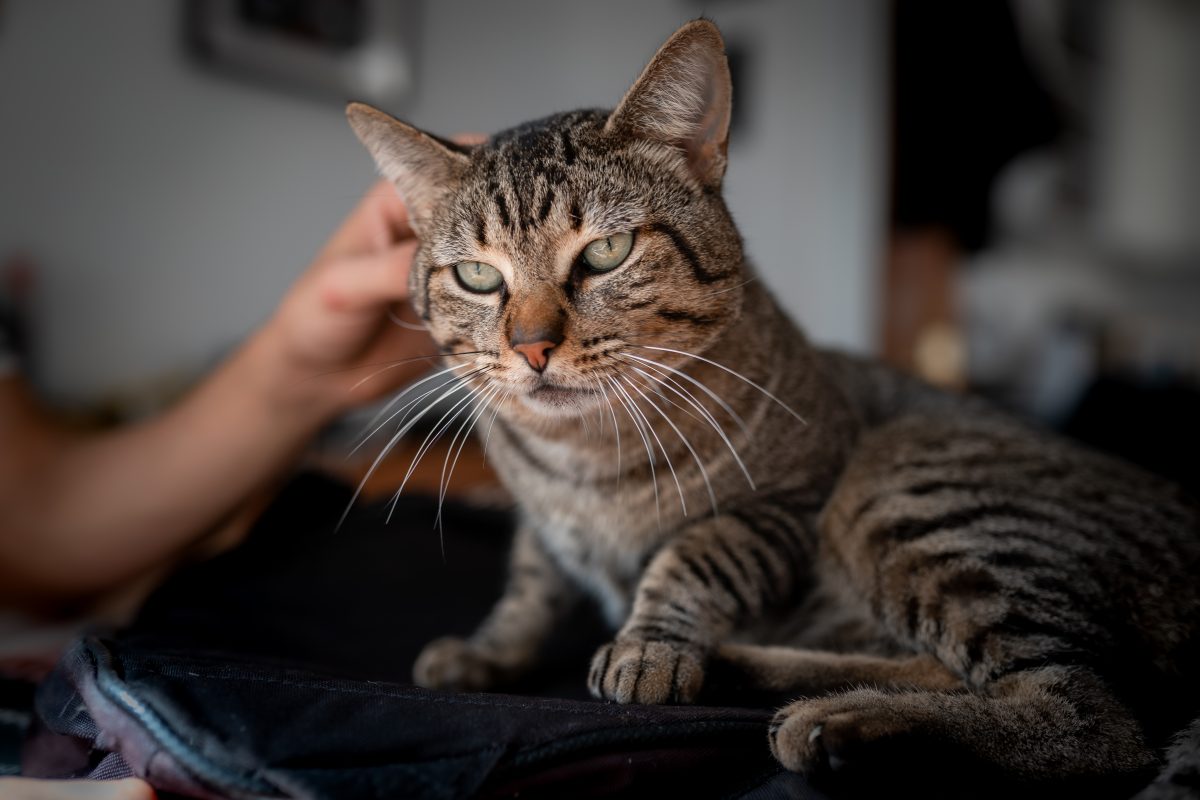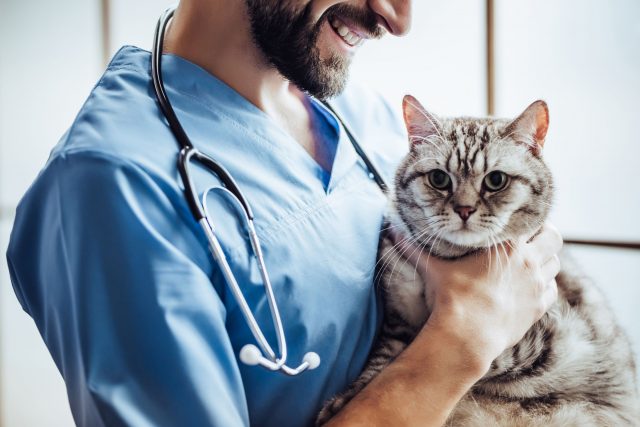
Introduction
Feline Immunodeficiency Virus (FIV) is a highly common viral infection which affects cats by progressively weakening the immune system. Over time, FIV-positive cats can be exposed to catching secondary infections and disease. However, research indicates that they can commonly live a happy full life – with a similar expectancy of their uninfected counterparts.
The virus presents itself as a short-lived illness at first, making it very difficult to be detected by owners. Adding to the difficult diagnosis, many infected cats have the virus dormant in their system for many years without symptoms.
What are the symptoms of FIV?
Whilst FIV positive cats may be prone to a variety of diseases, there are no set symptoms for any one cat. Some in fact may never reach the stages of disease. Although, in most cases, FIV cats show a first short bout of illness that is so mild many owners fail to detect it. After this, cats can experience lengthy periods of apparent good health before any potential secondary illnesses can occur.
With a weakened immune system caused by FIV, positive cats have a chance in catching secondary illnesses such as: skin problems; respiratory infections; mouth inflammation; cancers; blood diseases and possible tumours.
As good general practise, we would recommend you take your cat to visit your vet if any of the following symptoms occur:
- poor coat condition
- fever
- lack of appetite
- Lethargy
- enlarged lymph nodes
- inflammation in the mouth and gums
- infections in the eyes, skin, upper respiratory tract, or bladder
- diarrhoea
- persistent eye problems
- seizures
- behavioural changes
- signs of neurological disorders
- weight loss
How do cats get infected with FIV?
FIV is spread by direct contact by FIV positive cats. Typically, the virus is spread by biting and body fluids. Vets therefore find a high prevalence of FIV among unneutered, outdoor male cats who tend to get involved in territorial fighting. Mothers of kittens can also pass the infection to her young. However, many can overcome it before they reach six months old.
What are the treatments for FIV?
There is no vaccine for FIV in Europe unfortunately. Although, if you find your cat is suffering with a secondary illness as a consequence of the virus, there are many medications and therapies vets can suggest such as:
- anti-inflammatory drugs
- immune-enhancing drugs
- parasite control
- fluid and electrolyte replacement therapy
Can humans get FIV from cats?
Frequently, FIV is labelled as Human Immunodeficiency Virus or HIV, but for cats, due to their similarities in symptom. Although, FIV is very much a feline species-specific virus which infects only cats. There is no evidence to suggest FIV can infect or cause disease among humans.
What is the prognosis for cats with FIV?
If you have any concerns that your cat has caught the virus or, has any signs of ill health, please take your cat to visit your vet at the earliest opportunity. Make sure you keep some observational notes on your cat’s overall health and comment on any symptoms – these will be handy to share with your veterinarian.
Blood tests tend to be the typical way vets diagnose FIV in cats. By performing blood tests, they look for specific antibodies. Although, it can take up to twelve weeks after catching the virus before blood tests can detect signs of FIV. Also, your vet may opt for additional testing before settling on a diagnosis of FIV. Until you have received your results whether your cat is positive for FIV, it is strongly recommended you stop your cat going outside and keep them away from other cats to prevent spreading.
Can FIV be prevented?
As great pet owners, we always want to do all we can to keep our feline friends out of harms way and ensure they have the happiest, healthiest life possible! Here are some general pointers to help prevent catching FIV, as well as standard disease protection:
- Make sure you keep your cat fully vaccinated against the standard infectious diseases.
- Neutering can reduce the risk of fighting, and coming into close contact with other felines.
- Attend regular veterinary check-ups.
- Feeding them a balanced healthy diet and eliminate raw foods and eggs.
- Maintaining a good preventive healthcare routine such as regular flea and worm control.
- Prompt diagnosis and appropriate treatment at any signs of illness.
- Watch for any changes in your cat’s behaviour.
Ideally, FIV-infected cats should be separated from other cats by keeping them indoors. However, in households with multiple cats it can sometimes be difficult. Although, risk of transmission is low by social contact, for example, things like mutual grooming or sharing food bowls. It is advised for owners to do all they can to limit these interactions, so it could be a good idea to make protective measures. Such as disinfecting litter trays after use and using separate food bowls.
Can I insure a cat with FIV?
The benefits of insuring your cat are tenfold, and with the chances of expensive ongoing FIV treatment, it may be a good option. You may want to consider insuring your cat soon as you can, so you’re covered before any signs of illness could happen. This will ensure you have the support to care for them if they become poorly.
If you are looking to insure your cat, make sure your insurer is aware if your pet is infected with FIV, as you would when you declare for any other pre-existing medical conditions. Each insurer works differently with set policy terms and conditions, at The Insurance Emporium, like many other providers, we do not include FIV a part of our pet insurance cover.
When searching for pet insurance, we recommend you contact the insurer directly to discuss whether illnesses such as FIV are excluded from their policy before signing up.
Conclusion
We hope reading our comprehensive guide has helped you to understand FIV and the many ways we can all prevent the disease from spreading among our furry friends. If you notice any symptoms of FIV, please do visit your vet for advice in seeking the right treatment for your cat.



